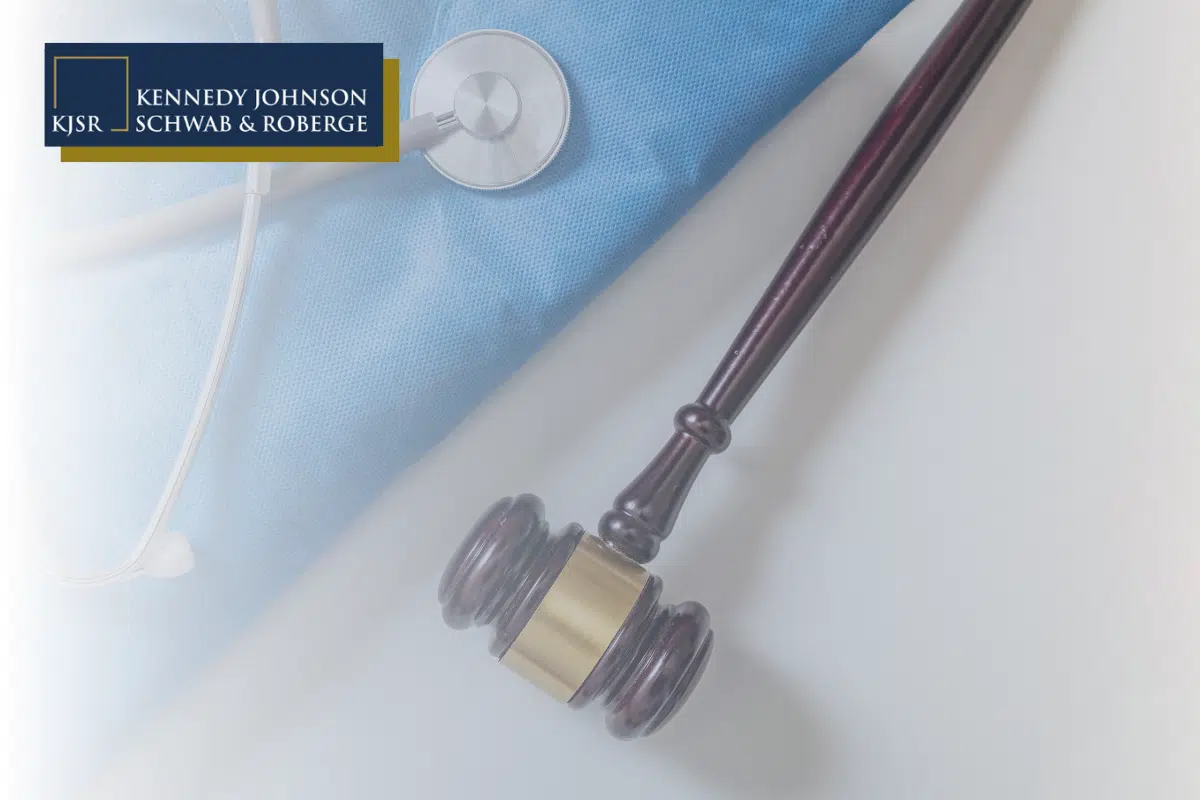Connecticut Medical Malpractice Lawyer
Medical malpractice is the overarching legal term used to describe events that occur when a doctor departs from the profession’s accepted standards of care during treatment of a patient. When the doctor’s negligence results in significant and avoidable injury to the patient, then the patient may have a claim for medical malpractice.

Home » Connecticut Medical Malpractice Lawyer
A careless health care provider can cause life-altering injuries and undermine your trust in the medical system. Our award-winning Connecticut medical malpractice lawyers have over 35 years of experience recovering substantial compensation for patients injured by medical negligence. If you or your loved one has been harmed by medical malpractice, speak with a top-rated medical malpractice lawyer now for a free case review.
Table of Contents
- Helping Victims of Medical Malpractice Across Connecticut
- Millions Recovered for Connecticut Medical Malpractice Victims
- Areas We Serve
- Medical Malpractice Cases We Handle
- Our Medical Malpractice Attorneys
- What Our Clients Say
- Protect Your Legal Rights – Contact Our Lawyers Today
- Connecticut Medical Malpractice Lawyer FAQs
Key Takeaways
- Medical malpractice compensation claims are complex cases that should only be handled by an experienced medical malpractice law firm with a proven track record.
- You may be entitled to compensation for your medical bills, lost wages, pain and suffering, mental distress, and other economic and non-economic damages, with no state caps on the amount you can recover.
- We have over 35 years of experience handling medical malpractice claims and have built a strong reputation throughout Connecticut for securing significant financial compensation.
- You must file your medical malpractice lawsuit within two years of the malpractice or the date you discovered the injury, but you cannot file a claim if more than three years have passed since the provider’s negligence.
- Your medical malpractice claim may be worth hundreds of thousands or millions of dollars, and we can help you recover your claim’s full value.
Helping Victims of Medical Malpractice Across Connecticut
When you choose Kennedy, Johnson, Schwab & Roberge, P.C., you choose an ally with a proven history of navigating legal complexities and securing just outcomes. Our award-winning Connecticut medical malpractice attorneys work as a unified team to fight for fair compensation. You will benefit from our world-class attorneys’ combined skills and experience and get the personal attention you need when you are coping with debilitating injuries.
Going against large health care corporations requires significant resources, medical knowledge, skill, and determination. It takes an attorney with experience handling your type of medical malpractice claim. We have been securing substantial compensation in medical malpractice claims since 1988.
When you work with our reputable medical malpractice lawyers, you can focus on your recovery while we concentrate on securing your compensation. We will handle your legal details and the hard work necessary to prove your claim, including the following:
- Investigating the incident
- Talking to eyewitnesses
- Consulting with medical experts
- Reviewing your medical records
- Calculating your case value
- Negotiating a settlement
- Taking your case to trial if necessary
We will answer your calls and keep you informed until we get justice for you.

John Kennedy Jr.
Founding Partner
John J. Kennedy, Jr., is the founding partner of Kennedy, Johnson, Schwab & Roberge, P.C. In 1988, John formed Kennedy & Johnson, along with David Johnson. John is an accomplished trial attorney, spending most of his more than 42 years practicing in Connecticut, representing injured clients before juries.
Millions Recovered for Connecticut Medical Malpractice Victims
We have won numerous multimillion-dollar settlements and verdicts for our medical malpractice clients through meticulous preparation and trial readiness. Below are just a few examples of our successful results:
- $12.5 million recovered for the wrongful death of a patient in a medical malpractice case against Stamford Hospital
- $5.5 million recovered for the wrongful death of a 69-year-old man with Mesenteric Ischemia
- $5 million recovered for a brain injury caused by a surgical error
- $4 million in medical malpractice compensation for a wrongful death claim
- $3.6 million medical malpractice verdict after trial for a patient’s wrongful death
- $3.4 million recovered for a brain injury caused by the improper post-operative cleaning of a wound
- $3.3 million trial verdict for a traumatic brain injury caused by misintubation
- $3.1 million recovered for the failure to diagnose a rare form of cancer
- $2.5 million recovered for the family of a man who died of a heart attack weeks after two separate doctors misdiagnosed his heart condition
- $2.3 million recovered for the failure to diagnose and treat a subdural bleed that resulted in the patient’s death
Areas We Serve
Our medical malpractice lawyers are proud to provide effective and aggressive representation with a personal touch to clients throughout the state, including in the following communities:
- Bridgeport
- Danbury
- Greenwich
- New Britain
- New Haven
- Norwalk
- Stamford
- Waterbury
- West Hartford
Medical Malpractice Cases We Handle
We have obtained significant case results against doctors, nurses, hospitals, nursing homes, pharmacists, radiologists, and numerous other health care providers in the following types of cases:
- Birth Injuries
- Hospital Errors
- Medication Errors
- Medical Misdiagnosis
- Pediatric Malpractice
- Radiology Errors
- Surgical Errors
Our Medical Malpractice Attorneys
Our attorneys are leaders in medical malpractice litigation with national recognition for their successful client representation.
John Kennedy has over 42 years of experience in medical malpractice mediation, arbitration, and trial. He is a member of the International Academy of Trial Lawyers and is recognized as one of America’s Top 100 Attorneys.
Stephanie Roberge has 34 years of experience and a scientific background, giving her unique insight into medical malpractice claims. She is a member of the Board of Governors of the Connecticut Trial Lawyers Association and the International Academy of Trial Lawyers.
Brendan Nelligan is an accomplished medical malpractice attorney with over a decade of experience. He has been recognized as a Super Lawyers Rising Star since 2018.
Michael Kennedy is an experienced trial lawyer with over ten years of experience handling medical malpractice claims. He has negotiated numerous settlements of over $1 million and has been recognized as one of the Best Lawyers in America.
Patrick Kennedy is an accomplished medical malpractice trial lawyer with decades of experience. He is a fellow of the International Academy of Trial Lawyers and has been recognized as a “New Leader in the Law” by the Connecticut Law Tribune.
What Our Clients Say
Our responsive and sympathetic legal representation in both small and large injury cases means everything to our clients, and it shows in the testimonials we regularly receive:
Shannon E.
Outstanding lawyers. Attorney John Kennedy and his son Attorney Patrick Kennedy are professional in every aspect and make a difficult situation less stressful. I highly recommend them to represent you in litigation.
Ed L.
This firm, (Michael Kennedy) went above and beyond at every turn of this process. They were efficient, thorough beyond measure and most of all compassionate, including us and keeping us informed at every step. This firm is everything a firm should be and beyond thank you again for being our champion.
Victor H.
Protect Your Legal Rights – Contact Our Lawyers Today
With our 35 years of experience and track record of handling complicated and high-exposure claims with outstanding results, you can trust our Connecticut medical malpractice lawyers to wage an effective fight for full compensation. Take the first step towards recovery—schedule your free consultation today.
Connecticut Medical Malpractice Lawyer FAQs
How Long Do I Have to File My Connecticut Medical Malpractice Claim?
The Connecticut statute of limitations for medical malpractice lawsuits is generally two years from the date of the health care provider’s error if you knew about the injury immediately. Some injuries from medical malpractice are not discoverable until later. In these cases, you have up to two years from the date you discovered the injury or should have discovered it in the exercise of reasonable diligence. However, in no case can you file a medical malpractice lawsuit more than three years after the date of the health care provider’s error.
How Much is My Medical Malpractice Lawsuit Claim Worth?
According to the June 2024 CT Medical Malpractice Report, the average insurance payout for Connecticut medical malpractice claims from 2019 through 2023 was $960,232. However, we have recovered significantly higher payouts for our medical malpractice clients.
The amount you recover will hinge on your case’s unique facts, such as the severity of your injuries, the effect of your injuries on your future earnings, the degree of suffering your injuries cause, and the length of your recovery. We have a reputation for recovering significant damages for our clients.
What Damages Can I Claim in a Medical Malpractice Lawsuit?
Damages in a Connecticut medical malpractice lawsuit may include economic and non-economic damages. Economic damages are compensation for the monetary costs associated with your injuries, such as medical expenses, loss of earnings, and loss of future earning capacity. Non-economic damages are compensation for your intangible losses. The Connecticut court system recognizes such non-economic losses as the following:
- Mental distress and suffering
- Loss of the ability to enjoy life’s pleasures
- Permanent impairment
- Disfigurement
- Death
- Loss of consortium
Does Connecticut Have a Cap on Medical Malpractice Damages?
Although some states limit damages in medical malpractice claims, there is no hard limit on the damages you can recover in a Connecticut medical malpractice lawsuit. You are entitled to recover whatever amount a judge or jury determines is fair, just, and reasonable. The purpose is to restore you to where you were before the accident to the fullest extent possible with financial compensation.
How Much Does it Cost to Hire a Medical Malpractice Attorney?
It costs nothing to hire our experienced Connecticut medical malpractice law firm. If we recover compensation on your claim, we will collect a percentage of your proceeds as our fee. We only get paid if you get paid.
Free Case Evaluation
"*" indicates required fields
Office Locations
15 N. Main Street #100 Suite 217
West Hartford, CT 06107
Related Pages
- Connecticut Birth Injury Lawyer
- Connecticut Cerebral Palsy Lawyer
- Improper Fetal Monitoring
- Shoulder Dystocia Injury Lawyers Serving Connecticut
- How Long Do You Have To File a Medical Malpractice Lawsuit?
- Surgical Stapler Injuries: Can You File a Lawsuit?
- The Role of Lack of Informed Consent in Medical Malpractice
Client Testimonials
I had the privilege of being represented by Mr. John Kennedy. He was someone I could trust to be honest and walk me through a difficult time. Taylor, his paralegal, took the time to explain each circumstance that came about. I appreciate the work that was done by Mr. Kennedy and Mr. Nelligan. I would recommend Attorney John Kennedy because of his integrity and genuine concern he showed to me. My experience with them was something I will never forget and will always be thankful for.
Shannon E.
Outstanding lawyers. Attorney John Kennedy and his son Attorney Patrick Kennedy are professional in every aspect and make a difficult situation less stressful. I highly recommend them to represent you in litigation.
Ed L.
This firm ,(Michael Kennedy) went above and beyond at every turn of this process. They were efficient, thorough beyond measure and most of all compassionate, including us and keeping us informed at every step. This firm is everything a firm should be and beyond thank you again for being our champion.
Victor H.
Our Results
$17 million
Hospital malpractice case resulting in stillborn child
Medical Malpractice
$12.5 million
Medical Malpractice
$5.5 million
Death of a 69 year old man with mesenteric ischemia
Medical Malpractice
$5 million
Brain Injury caused by surgical error of neurosurgeon
Medical Malpractice
$4 million
Medical Malpractice
